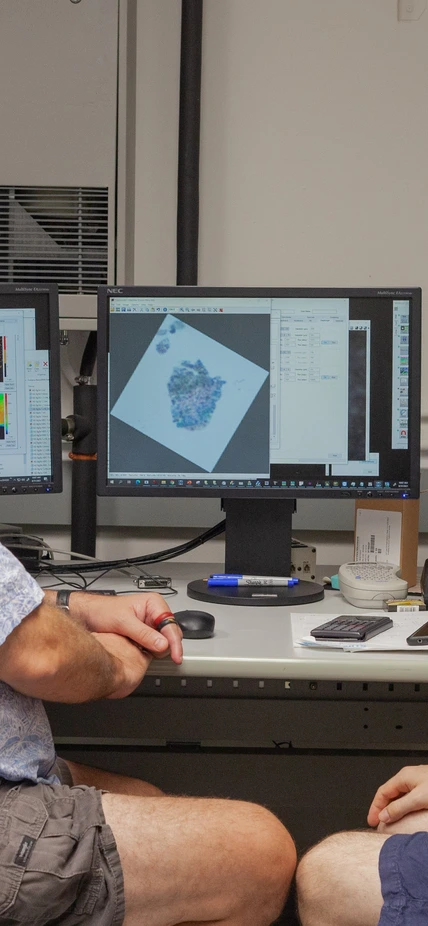More than 300 people tuned in for Larry Nittler’s Asteroid Day-themed talk entitled, “Bringing Asteroids to Earth: A Trip to the Early Solar System.” The talk, which was aimed at both scientists and the scientifically interested alike, took viewers 4.6 billion years back in time to the formation of our Solar System before explaining where asteroid research stands today in 2021.
Instead of studying meteorites to learn more about asteroids, sample return missions are going straight to the source! pic.twitter.com/23H18n0qjP
— Carnegie Earth & Planets Laboratory (@CarnegiePlanets) June 30, 2021
Ryugu sample to arrive at Earth and Planets Laboratory
The second half of the talk focused on the recent asteroid return missions: JAXA’s Hayabusa2 mission and NASA’s OSIRIS-REX. Nittler explained why scientists are excited to study direct samples from these space rocks, and how the samples may differ from or confirm what we know about the Solar System from meteorites.
Since the sample capsule arrived in December 2020, the JAXA team has been curating the samples for dissemination to the mission’s seven scientific teams for “Preliminary Examination”—a phase that will last about a year. Nittler, who is one of only nine U.S. “participating scientists” on the Hayabusa2 mission, expects to receive the samples on campus by the end of July.
A larger group of Carnegie scientists, including EPL Director and geochemist Richard Carlson, geochemist George Cody (who is the deputy lead on the Insoluble Organics sub-group lead by former Carnegie Fellow Prof. Hikaru Yabuta, now a Professor at Hiroshima University), and cosmochemist Conel Alexander (who is a member of the Isotope sub-group), will join Nittler to study the sample when it ultimately arrives on our campus.
.@LarryNittler put together this slide sharing the locations of asteroids that are named after past and present @CarnegiePlanets folks.
— Carnegie Earth & Planets Laboratory (@CarnegiePlanets) June 30, 2021
Said Nittler, "I thought this was a fun tribute to my colleagues at EPL, and a way to celebrate the amazing science I get to be a part of." pic.twitter.com/Lc1pdnYvB9
What’s next for our Neighborhood Lecture Series?
If things go according to plan, the Neighborhood Lecture Series may be in-person again come September. However, Earth and Planets Laboratory Director Richard Carlson is keen to continue to broadcast public events in an engaging virtual format.
“One silver lining”, stated Carlson, “is that these virtual events reach alumni, scientists, and science supporters all over the world.”
More details to come! Stay tuned.
Read more about the asteroid sample return missions >>
